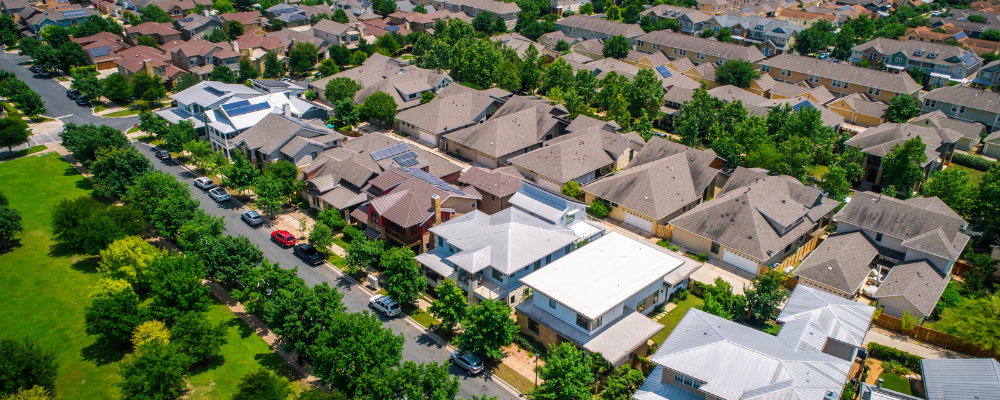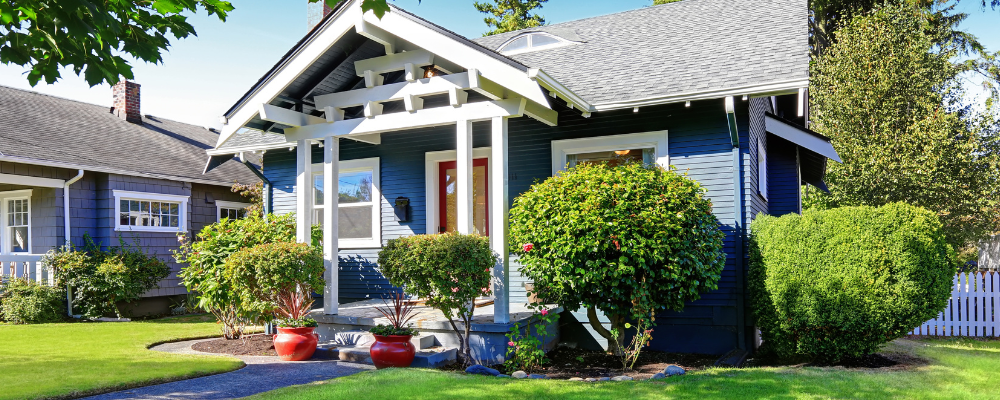What You Need To Know
A hard money 2nd mortgage is provided by a private lender and is taken out as second loan, which means that borrowers need to have a first mortgage already in place. These loans are secured by the existing mortgage and are therefore riskier. This means that they may have higher interest rates and shorter loan terms. However, they can also provide access to funds quicker than traditional loans.
Some lenders that provide hard money 2nd mortgages are:
- First Capital Trust Deeds
- North Coast Financial
- Independent Lending
Skip To
What Is A Hard Money 2nd Mortgage?

For borrowers that don’t qualify for traditional loans or who need a loan in a short timeframe, a hard money 2nd mortgage can be a good financial solution. A hard money 2nd mortgage is essentially secured by a property that has an existing mortgage and is taken out as a second mortgage in addition to the original.
These loans are referred to as “hard money” because they are provided by a private lender (hard money lender). A hard money 2nd mortgage may have higher interest rates, and different lending terms to a traditional lender, but these loans can often be provided quicker and easier.
Hard money 2nd mortgage process
A hard money 2nd mortgage process involves the borrower providing information about the property’s value, the equity, and the existing first mortgage. The hard money lender will then determine whether the property has sufficient value and if the borrower’s equity is significant enough.
If the loan is approved by the hard money lender, the borrower will receive the funds as a lump sum. The first property is used as security for the loan, which means that if borrowers default on it, they may face foreclosure on their home.
How Does It Differ From A Standard Hard Money Loan?
Hard money 2nd mortgages and standard hard money loans are both provided by private lenders (hard money lender) who are not affiliated with traditional lending institutions and offer various loan terms and rates that suit some borrowers better. While similar, there are also some key differences between standard hard money loans and hard money 2nd mortgages:

Purpose
Standard hard money loans are often used for various purposes, such as real estate investments, property acquisitions, or bridge financing. On the other hand, a hard money second mortgage is specifically used to provide additional financing to a property owner who already has an existing first mortgage in place and needs additional funds.
Loan Rates and Terms
A hard money 2nd mortgage carries more risk for a hard money lender than standard hard money loans. To mitigate this risk, the interest rates on hard money 2nd mortgages are often higher, and the repayment periods can be shorter than standard hard money loans.
Loan Amount
When it comes to standard hard money loans, the loan amount is based on the LTV of the property, and a hard money lender is providing the primary loan on the property which covers a large portion of its value. Whereas hard money 2nd mortgages require an initial mortgage to be in place already and these loans are secondary to the first mortgage. They are also based on the property value and the balance of the first mortgage.
Lien Priority
On standard hard money loans, the first lien is held on the property by the hard money lender as they are providing the primary loan. Whereas a hard money 2nd mortgage holds the second lien on the property, which means that the hard money lender providing this loan doesn’t have the first right to foreclosure if the borrower defaults on payments.
Qualification criteria
Due to the fact that hard money 2nd mortgages require a mortgage to be in place already, the lending criteria can be less stringent on these loans than standard hard money loans. The 2nd mortgage provided by a hard money lender will be more focused on the property’s value and the equity that the borrower has in the property, instead of the borrower’s credit score and financial history.
List Of Hard Money 2nd Mortgage Lenders
First Capital Trust Deeds: This hard money lender offers hard money 2nd mortgages to real estate investors who are actively investing. The loan terms are between 12 and 36 months. Investors can borrow anything from $200,000, up to $5million. FCTD offers loan closing in 7-14 business days, however, these loans can only be used for business or investment purposes.
North Coast Financial: This hard money lender provides both business and consumer hard money 2nd mortgages. The lender provides hard money second trust deeds in California only, up to a combined loan to value (CLTV) of 60-65%. The lender will accept 2nd position hard money loan requests starting at $20,000, up to $250,000.
Independent Lending: Operating in California, this hard money lender provides hard money 2nd mortgages to borrowers. Loans can be closed within 15 days, and a credit score of just 300 can be accepted. A CLTV of 65% is usually required by this hard money lender, and rates are as low as 10.50%.
Requirements For A Hard Money 2nd Mortgage

The specific requirements for a hard money 2nd mortgage can vary depending on the hard money lender and each borrower’s circumstances. However, as a general rule, the following criteria should be considered when applying for a hard money 2nd mortgage:
Existing Mortgage: There needs to be a mortgage already in place on the property. A hard money lender will look at the borrower’s payment history, interest rate and other important information on this mortgage, as part of their decision.
Equity: A hard money 2nd mortgage is based on the equity that has been built up in a property. Which means that borrowers will need to have equity of anywhere between 30% and 50% of the property’s value.
Property Value: A professional will need to appraise the property to determine its’ value, and this will determine the Loan-To-Value (LTV) ratio. The combined LTV should be below 70%, in order to borrow against the equity in the property through a hard money lender.
Borrower’s Credit: While a hard money 2nd mortgage is predominantly based on the property’s value, a hard money lender will have varying credit criteria for borrowers. These can include specific credit scores and other documentation.
Exit Strategy: Hard money lenders sometimes require a clear exit strategy from borrowers. Which means that a borrower will need to have a detailed plan on how they will repay the loan within the given timeframe. This can include providing proof of income, bank statements and other documents.
What Kind Of Property Can You Buy With A Hard Money 2nd Mortgage?

A hard money second mortgage can be used to purchase various types of properties including residential, commercial, or investment property options. Each lender may have different criteria with regards to the property types that can be funded with a hard money 2nd mortgage. The following properties can be considered:
- Residential properties: The properties included in this category for hard money 2nd mortgages are single-family homes, townhomes, condos, and multi-unit residential properties like duplexes and apartments.
- Commercial properties: Funding for office buildings, retail spaces, warehouses, or mixed-use properties can also be obtained through these loans.
- Investment property: Real estate investors can use hard money 2nd mortgages to purchase an investment property such as fix and flips, rental properties and short-term rentals.
- Land: Land financing varies according to each lender, but in some cases hard money 2nd mortgages can be used to fund the purchase of land or undeveloped properties.
Bear in mind that hard money lenders may have specific requirements about the property’s potential profitability, location, condition and more. These factors may impact whether the funding is provided for the property purchase.
What Are The Other Types Of 2nd Mortgage Loans?

Cash-out Refinance
Cash-out refinances allow borrowers to use the equity they already have in a property, in order to receive a lump sum. This works by replacing the existing mortgage with a new one, which has a higher total loan amount than the current mortgage. The difference between the loan amounts is what the borrower will receive as a cash lump sum when the loan closes. These funds can be used for a variety of purposes, such as renovations and debt consolidation.
Home Equity Loan
A home equity loan is a type of second mortgage where homeowners can borrow against the home equity they already have. These mortgage loans are typically provided as a lump sum and have a fixed interest rate and fixed repayment. Borrowers often use home equity loans to cover major purchases, debt consolidation or make upgrades to the home.
HELOC
Another type of second mortgage is a Home Equity Line Of Credit (HELOC), which is similar to a home equity loan in that the home equity is being borrowed against. However, the key difference is that a HELOC isn’t paid out as a lump stuff, but instead as a revolving line of credit. Borrowers can access funds up to a predetermined credit limit during the draw period of these loans, which makes these loans flexible for various purposes.
Piggyback Loan
Piggyback loans involve taking out a second mortgage concurrently with the first mortgage to avoid paying private mortgage insurance (PMI) and/or to finance a higher percentage of the home’s purchase price. The second mortgage covers a portion of the down payment, reducing the loan-to-value (LTV) ratio of the first mortgage. Piggyback loans are often structured as fixed-rate loans or HELOCs.
Final Thoughts - Is This The Right Type Of Loan For You?
It’s important to consult with various potential hard money lenders to understand their lending criteria and determine whether the property aligns with their requirements. Along with this, it’s advisable to go with the hard money lender that not only fits the property, but also your financial goals, such as expanding a real estate portfolio or debt consolidation.
Further factors to consider when deciding whether a hard money 2nd mortgage is the right type of mortgage loan for you include:
- Equity: The equity you have built up in a property is a key factor to determine whether a hard money 2nd mortgage is feasible. The higher the equity, the better your chances of qualifying for a loan of this nature.
- Speed: If you need access to funds urgently, a hard money 2nd mortgage may be a good solution. These are typically provided much faster than traditional loans.
- Higher Rates and Shorter Terms: Bear in mind that these loans come with higher interest rates and shorter loan terms, which means that they aren’t suited to everyone. Carefully evaluate the costs associated with the loan and ensure that the benefits of accessing the funds quickly outweigh the higher expenses.
- Risk Tolerance: Assess your risk tolerance and evaluate whether you are comfortable with the potential risks associated with a hard money 2nd These loans are higher risk than traditional mortgage loans and the loan terms typically reflect this.



